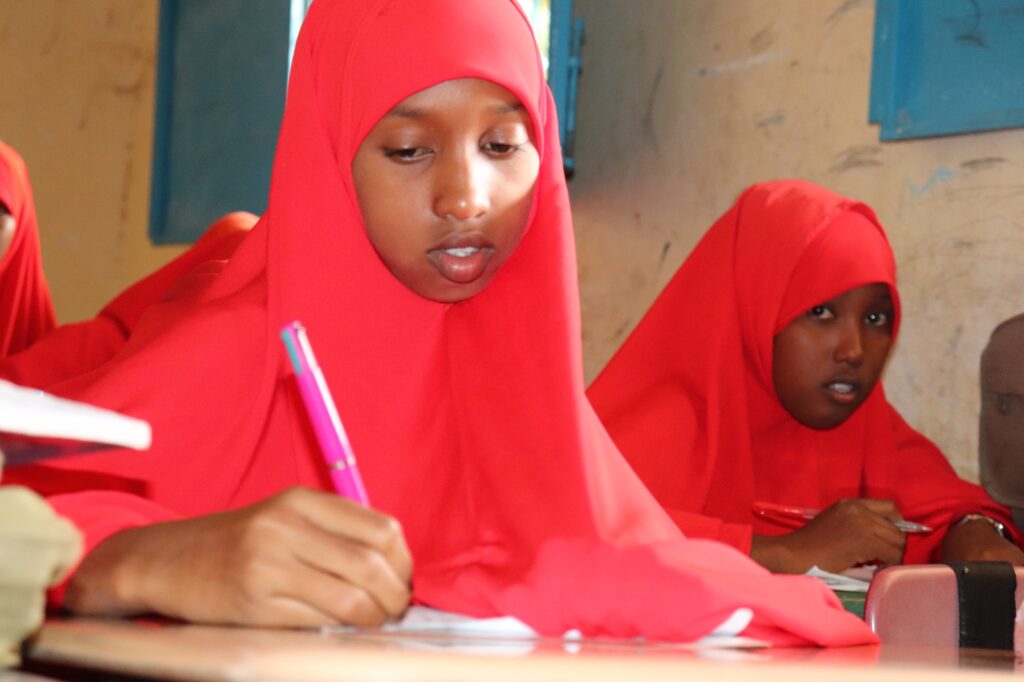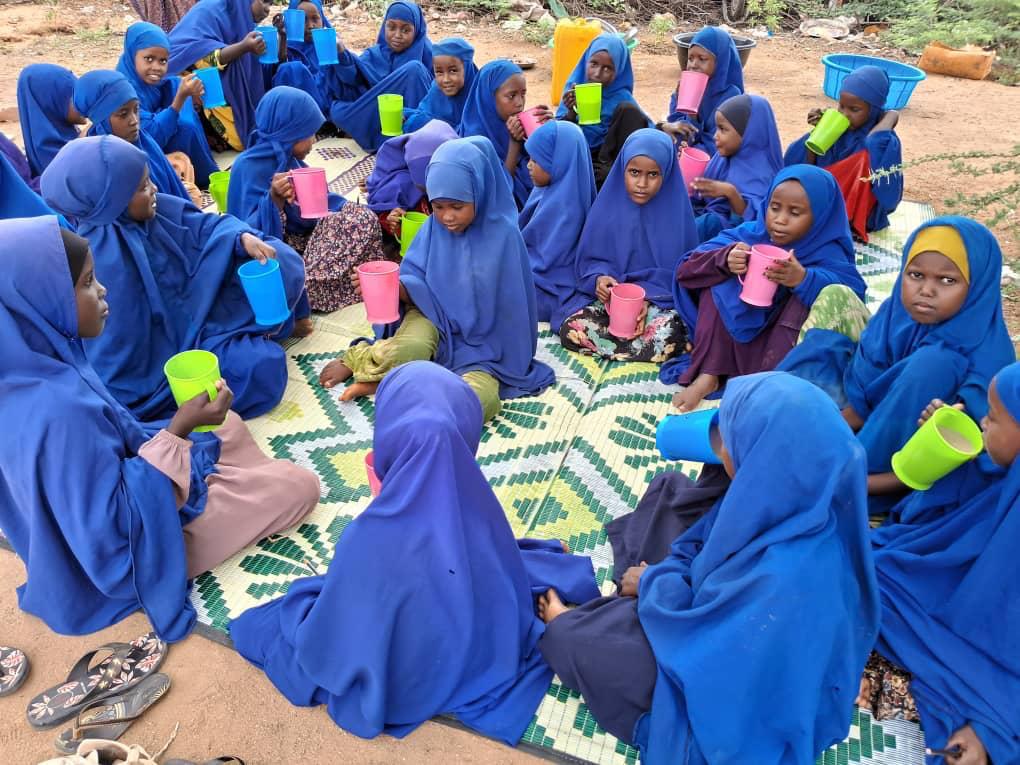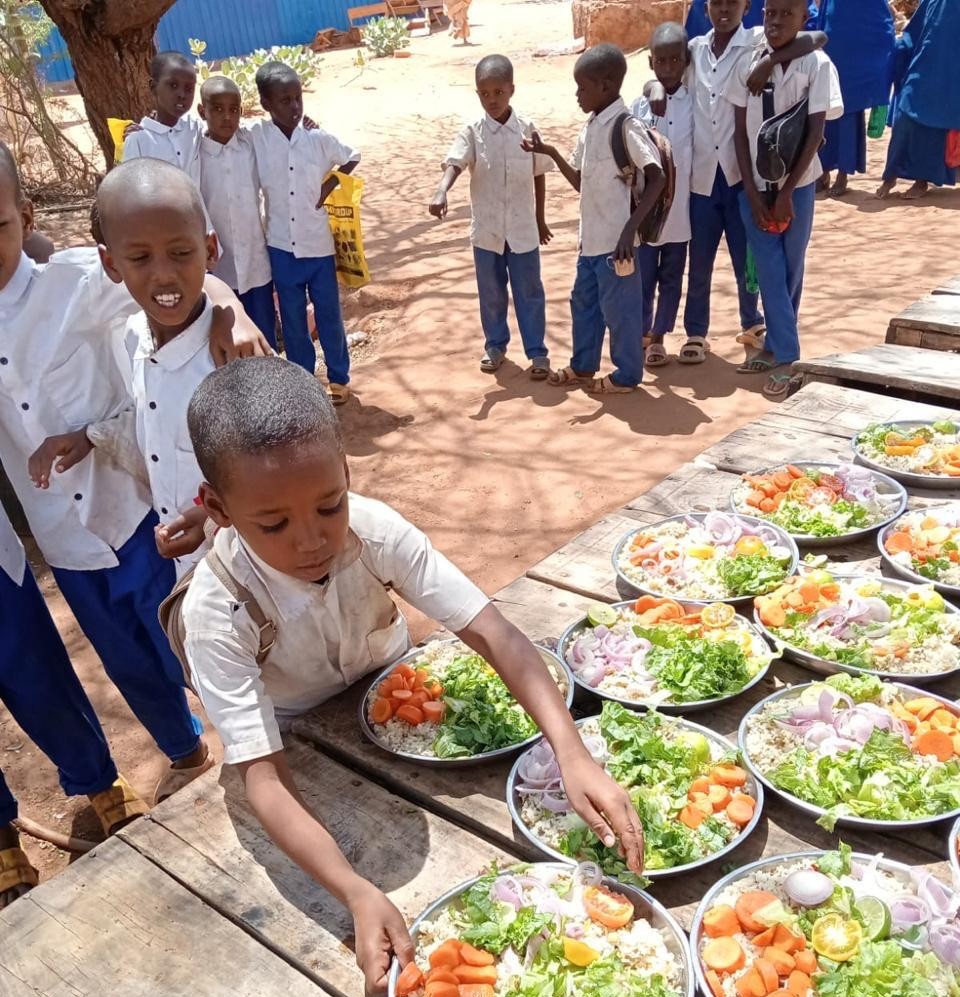
It’s midday break at Durrow Primary School in Dollow District, Somalia. Rows of eager children in uniform wait patiently in line, their laughter and chatter filling the air as they queue for their daily breakfast. Among them is 14-year-old Hawa Adan, a class seven student. Just four years ago, Hawa had to drop out of school to help her family, spending most of her time at home carrying out domestic chores.
Hawa is one of 11, 420 students across Gedo region who are part of the school feeding programme in the region implemented by Nomadic Assistance for Peace and Development (NAPAD) with support from the World Food Programme (WFP). The programme is active in 27 primary schools across Dollow, Beled Hawa, and Luuq districts.
Every school day, 6,175 boys and 5,245 girls like Hawa receive a nutritious breakfast and lunch, two meals many of them wouldn’t get at home. The school feeding programme plays an important role in improving children’s health, educational outcomes, and overall well-being. By providing nutritious meals at school, the programme helps combat hunger, enhances the student’s concentration in class, cognitive development, and increases school enrolment, attendance, and retention rates especially among vulnerable groups such as girls. “Before, I stayed at home,” Hawa shared quietly. “Now, I come to school every day. I eat breakfast and lunch here, and I’m ready to learn. I want to be a doctor one day, so I can take care of my family and my friends when they get sick.”

Since the feeding programme began, enrolment numbers have nearly doubled from 5,947 to 11,420. In just the past year, a total of 2,472 new students were registered a notable increase from the 1,200 new admissions in the previous year. The promise of regular meals has also encouraged many parents from food-insecure households to send their children to school, creating new opportunities for thousands of young learners like Hawa.
NAPAD works closely with the headteachers to ensure the smooth coordination of daily food distribution, effective management of food inventories, and the provision of rotating menus for cooks ensuring learners receive a varied and nutritionally balanced diet.

But now, there’s a growing concern. With funding uncertainties ahead, parents and teachers are worried that this life-changing programme may not continue.
“We’ve witnessed the change as girls are returning to school, and boys are staying enrolled longer. The students are not only enjoying their lessons but also the sense of community they find here,” reported a teacher from Durrow Primary School.
The school feeding programme extends beyond addressing hunger. It serves as a critical safety net, enhancing access to education and offering protection for vulnerable children already facing multiple and compounding challenges.
